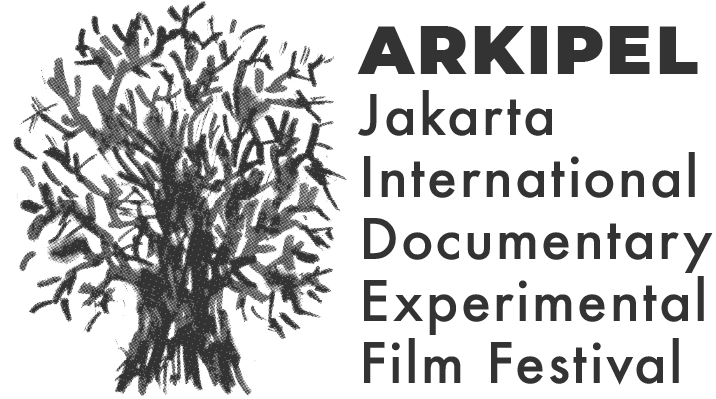august, 2016
Details
July 6, 2016, a document about the United Kingdom’s involvement in Iraq War 2003 was in circulation. This document called Iraq Inquiry[1] contains some important records on Iraq
Details
July 6, 2016, a document about the United Kingdom’s involvement in Iraq War 2003 was in circulation. This document called Iraq Inquiry[1] contains some important records on Iraq War by various high officials of the UK. In it is mentioned among others that UK and US have carelessly decided on invasion while there were still resorts other than war. There was still confusion, too, about the Mass Destruction Weapon as the justification of the war.
This curatorial program presenting Abbas Fadel’s Homeland: Iraq Year Zero (2015) can be said as a sort of response toward the phenomenon. In socio-political context, this film is closely related to War of Lies (by Matthias Bittner, 2014)[2] which speaks as well of the Iraq War 2003. However, while War of Lies frames the grand narration of the war—as revealed in the said document above—Homeland: Iraq Year Zero speaks instead of the Iraqi society experiencing the war first-hand, as the victims of both the attacker (American Army) and the attacked (Saddam Hussain’s government).
Iraq, as Saddam Hussain’s victim, is told in the first part of this film stretching to 160 minutes duration. The government’s domination is shown through epic propaganda for the Iraqi people in the media, something typical in a dictatorial state. Abbas Fahdel employs his closest relatives, family—consisting of nephew, in laws, and brother—who belong to the Iraqi middle class as a window for the audience to comprehend Iraqi people outside the conception of them built by mainstream media and Western films. This microcospic view then narrows to a boy called Haidar, Abbas Fahdel 11 year old nephew. It is through the boy that the film rolls.
The second part is the situation when Baghdad is already taken over by the Americans. The citizens of the city, including Abbas Fahdel’s brother, seem to feel displaced since many accesses to roads and public spaces are isolated for the sake of American military’s interest. This part also shows the condition of Baghdad people, especially the lower class who suffer the most from the war’s impact. Security becomes an issue since there’s no control by the apparatus; Saddam Hussein’s decision to release all prisoners from prison before Baghdad is taken over contribute to the chaos. Meanwhile, American soldiers are oblivious from the civilians’ condition living in the city.
Social/kapital mutation, as described as ARKIPEL’s theme, is traced through Abbas Fahdel’s shots. Both in the first and second part, we see the fall of a civilization on Eufrat/Tigris region. Abbas Fahdel never descriptively lays out which civilization dwells in the ruins since it’s not the objective of the shots. As a glimpse of Iraqi history, the ruins are brought forward as the myths’ death of the old civilization. It is seen, for example, as Haidar plays war with his friends inside the ruins.
That area of the river, called “The Craddle of Civilization” in archaeology, has given birth to various ancient civilizations such as Sumeria, Mesopotamia, and the Abbasid Sultanate. These old civilizations have contributed many things to human life, with legacies still evident until now such as the 60 based time measurement, the Epic of Gilgamesh in literature, Hammurabi Code as the oldest recorded law influencing policy developments on civic law from time to time, and many more. Those things are the genetics of Iraqi civilization bequeathed to the world. Those inventions’ elaboration are subject to debates since it is the nature of history to constantly revise itself; yet we cannot ignore the Ancient Iraqi civilization’s influence to others up to now. The ruins at that side of the rivers seem to be the Ancient Iraqis’ achievements, just as mentioned before, mutating in contemporary cultural bodies. Time, literature, and civil law are parts of our daily life while we, living in contemporary world, are often oblivious about the origins of those things. Those ruins then are used “only” as children’s playground, even American military’s base. This what makes Homeland: Iraq Year Zero not only relevant to talk about the Iraq War but also to question the contemporary world and its relation with the past.
Mutation is not only present through the relation of ancient cultures and contemporary world but also in Abbas Fahdel’s body who records all the scenes in the film. Abbas Fahdel’s relation with the world framed in the video camera is not an ordinary one of subject-object between the filmmaker and those recorded. It is a further personal relation of family members. For an example is the scene where Haidar’s mother, who is also Abbas Fahdel’s sister-in-law, asks him not to record her when she is not using head cover. Abbas Fahdel respects this decision and afterwards we no longer see her without a head cover. He also interacts directly, affirming that he is present in the place, whether during the recording within the family or the recording in the city as a citizen. We can point at the moment when Abbas Fahdel is in the market and refuses the designation “mister”, replying instead “I’m an Iraqi.” This is the reason why Homeland: Iraq Year Zero feels intimate both for audience and filmmakers.
The choice of video camera use, with its mobile feature, and the production strategy of collaboration between local inhabitants and the filmmaker seem to be understandable as an attempt to bring forth some articulation that emphasizes and puts forward the subjectivity of the location (and the people staying there) where the film is made, instead of the filmmaker’s. These opportunities are very likely to happen since video camera brings down the usual productional rigidity of conventional film production mechanism. This reminds us among others to AKUMASSA’s video works[3] that carry out visual language experimentation to reduce as much as possible the cameraman’s[4] subjectivity for the sake of more objective pictures by accommodating the interests of those aimed by the camera; so does Abbas Fahdel. In Homeland: Iraq Year Zero, the filmmaker works together with Haidar in seeking to present Iraqi children’s perspective there when talking about war, and the people around the place from various social classes, allowed by the video camera.
Meanwhile, in cinema history, there are some films incorporating “zero” into their title, such as Germany, Year Zero (1948) by Roberto Rossellini and Germany Year 90 Nine Zero (1993) by Jean-Luc Godard, with their social-political significance, referring to the fall of a cultural site due to outsiders invasion. For Homeland: Iraq Year Zero, the “zero” may have a similar meaning. Numbers are a part of the achievement of Eufrat-Tigris civilization. These invented numbers become a part of the culture due to the widespread use by people elsewhere. Culture can be invasive, propagating and often consuming another culture inadvertently. The Iraqi inhabitants we see in Homeland: Iraq Year Zero are no different from other peoples of the world, for example if we compare them with Indonesians; the children love to watch American cartoons in the morning, have softdrinks at noon, use cars to go places; it’s the same culture, the global one. America, without resorting to violence, has spread its culture—the American way of life—adopted by millions of people throughout the world by means of massive, various media. This phenomenon is a cultural mutation worthy of being framed in terms of ARKIPEL’s social/kapital.
To end this essay, I would like to quote a verse from a short film called Je vous salue, Sarajevo (1993) by Jean-Luc Godard, which also speaks of invasion by another country:
“In a sense, fear is the daughter of God, redeemed on Good Friday. She is not beautiful, mocked, cursed or disowned by all. But don’t be mistaken, she watches over all mortal agony, she intercedes for mankind; for there is a rule and an exception. Culture is the rule, and art is the exception. Everybody speaks the rule; cigarette, computer, t-shirt, television, tourism, war. Nobody speaks the exception. It isn’t spoken, it is written; Flaubert, Dostoyevsky. It is composed; Gershwin, Mozart. It is painted; Cézanne, Vermeer. It is filmed; Antonioni, Vigo. Or it is lived, then it is the art of living; Srebrenica, Mostar, Sarajevo. The rule is to want the death of the exception.”
Of the three cities mentioned above, today we can also add Aleppo, Jerusalem, and Baghdad.
[1] The document can be fully accessed online on www.iraqinquiry.org.uk.
[2] Screened during Grand Illusion of ARKIPEL last year in the International Competition Program.
[3] AKUMASSA is a community based media empowerment initiated by Forum Lenteng. This program works to create visual language (motion picture) experiments and produces a number of video works on little narratives and public events in many places of Indonesia; the production involves local citizens and puts forward their perspective as the base of ideas and picture composition.
[4] Although we know that cameraman’s subjectivity is impossible to remove, it is this point that becomes the subject of experimentation in AKUMASSA.
Time
(Thursday) 13:00 - 18:00
Location
TIM XXI
Address: Jl. Cikini Raya 73, Taman Ismail Marzuki, Daerah Khusus Ibukota Jakarta

